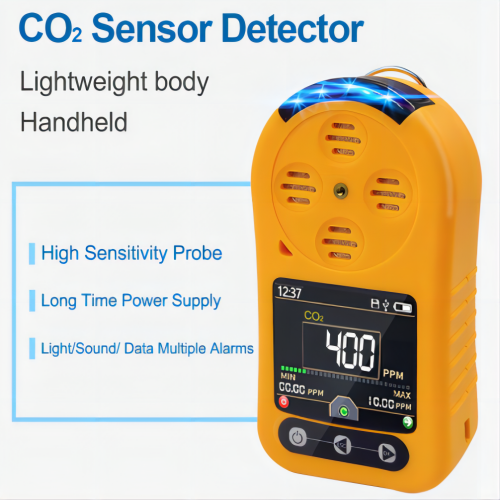CO2 detector play a critical role in monitoring indoor air quality, ensuring the safety and well-being of occupants in various environments. This article explores the significance of CO2 detectors, their applications in indoor air quality management, technological advancements, and the impact of these innovations on creating healthier and more sustainable indoor spaces.
Importance of CO2 Detector
CO2 gas detector are essential devices for monitoring carbon dioxide levels in indoor environments, providing valuable data to prevent potential health risks associated with poor air quality. By accurately measuring CO2 concentrations, these detectors support the creation of healthier and more comfortable indoor spaces while contributing to energy efficiency and environmental sustainability.
Applications of CO2 Detectors
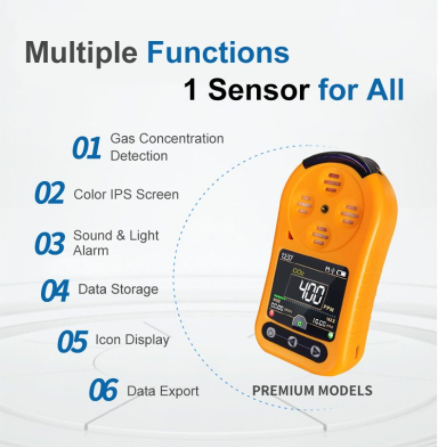
Indoor Air Quality Monitoring: Carbon dioxide detectors monitor residential and commercial indoor air quality to ensure that carbon dioxide levels remain within comfortable limits.
Ventilation Control: These detectors play a crucial role in controlling ventilation systems, enabling the automatic adjustment of airflow to maintain optimal CO2 levels and improve indoor air quality.
Workplace Safety: In manufacturing environments, carbon dioxide detectors are used to monitor indoor air quality, ensure compliance with safety regulations and protect workers from hazards.
Energy Efficiency: By providing data to optimize ventilation and HVAC systems, CO2 detectors support energy-efficient building operations, minimizing energy consumption while maintaining healthy indoor environments.
Technological Advancements in CO2 Detectors
The development of CO2 detectors has been marked by significant technological advances, leading to an exhibition of accurate and versatile solutions.
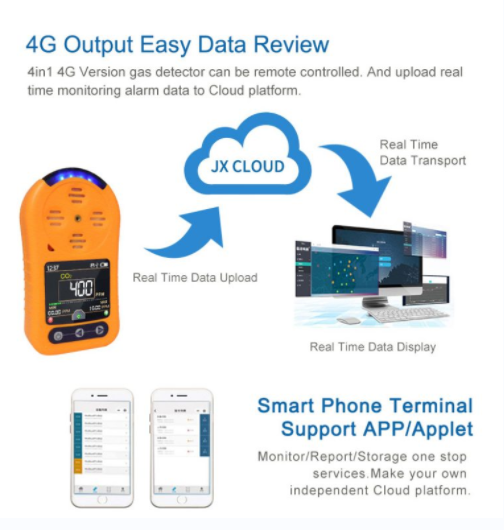
Advanced Sensing Technologies: Modern CO2 detectors utilize advanced sensing technologies, such as non-dispersive infrared (NDIR) sensors, to accurately measure CO2 concentrations in indoor spaces, ensuring reliable and precise data collection.
Wireless Connectivity: Many CO2 detectors with wireless connectivity, enabling real-time data transmission and remote monitoring of indoor air quality across different building zones.
Integration with Building Automation Systems: We integrate CO2 detectors into building automation systems, allowing for centralized control based on real-time CO2 measurements.
Impact on Indoor Air Quality and Environmental Sustainability
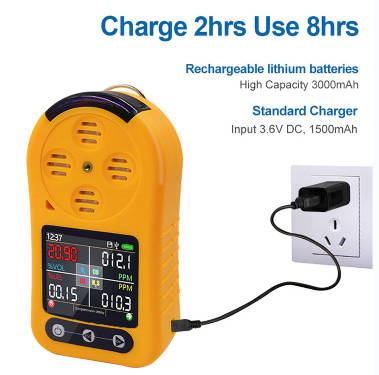
The widespread adoption of CO2 detectors has had a profound impact on indoor air quality and environmental sustainability.
Healthier Indoor Environments: CO2 detectors contribute to the creation of healthier indoor environments by ensuring that CO2 levels remain within recommended ranges, reducing the risk of fatigue, headaches, and other health issues associated with poor air quality.
Improved Productivity: Maintaining optimal CO2 levels through the use of detectors is related to the occupant’s cognitive function.
Energy Conservation: By optimizing ventilation based on actual CO2 levels, these detectors support energy conservation efforts, reducing unnecessary energy consumption and lowering the environmental footprint of building operations.
Regulatory Compliance: CO2 detectors help building owners and facility managers comply with indoor air quality regulations and standards, ensuring the safety and well-being of occupants while meeting environmental requirements.
Future Developments and Challenges
Looking ahead, the continued advancement of CO2 detector technology presents opportunities and challenges.
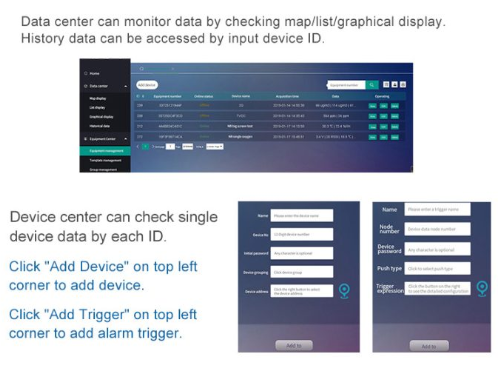
Integration with Smart Building Systems: We’re incorporating carbon dioxide detectors into smart building systems. In this way, real-time CO2 measurement and environmental parameters achieve indoor air quality control.
Sensor Calibration and Accuracy: Addressing the challenges associated with sensor calibration, accuracy, and long-term stability will be crucial to ensuring the reliability and effectiveness of CO2 detector data.
Health and Wellness in Indoor Spaces: CO2 detectors will play a key role in promoting health and wellness in indoor spaces, supporting efforts to create environments that enhance occupant comfort and productivity.
Conclusion
In conclusion, CO2 detectors are indispensable tools for monitoring indoor air quality, supporting health and well-being, energy efficiency, and environmental sustainability. As technology continues to advance, the integration of innovative sensor technologies and data analytics will further enhance the capabilities of CO2 detectors, contributing to the creation of healthier, more sustainable indoor spaces.
